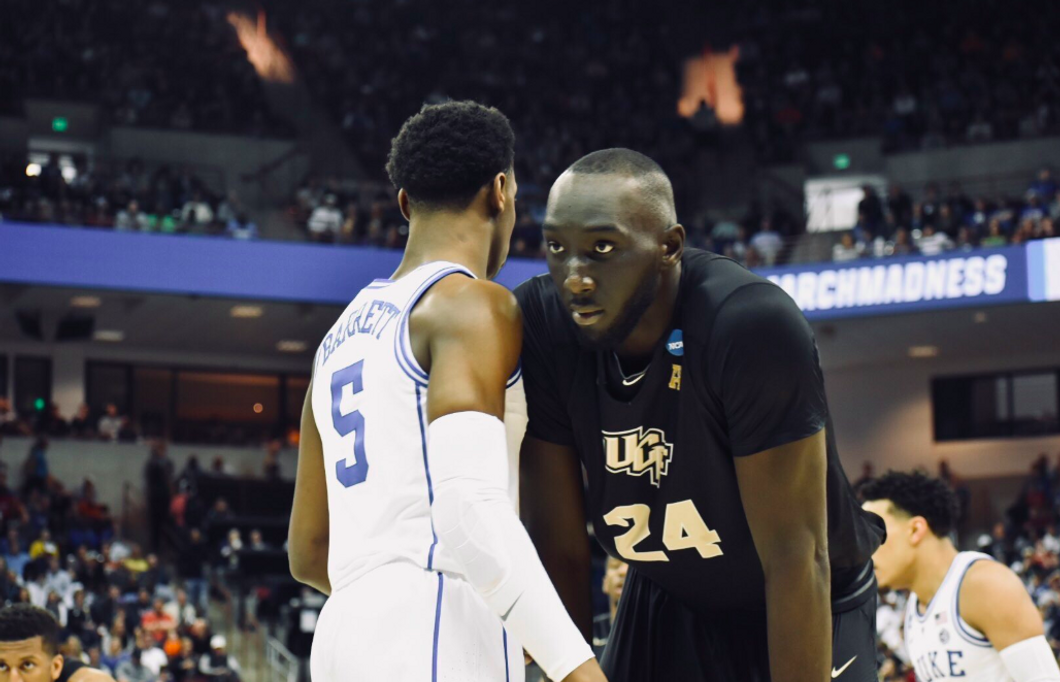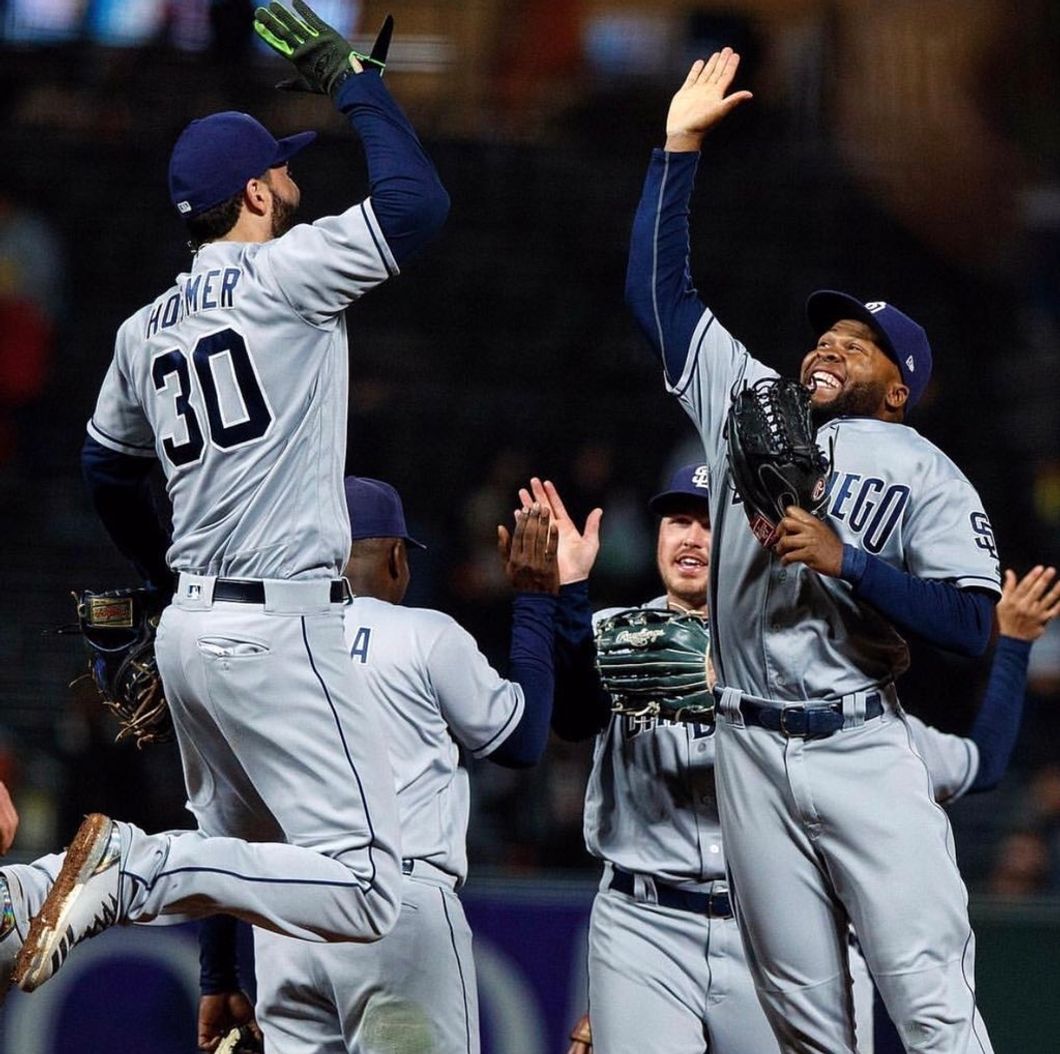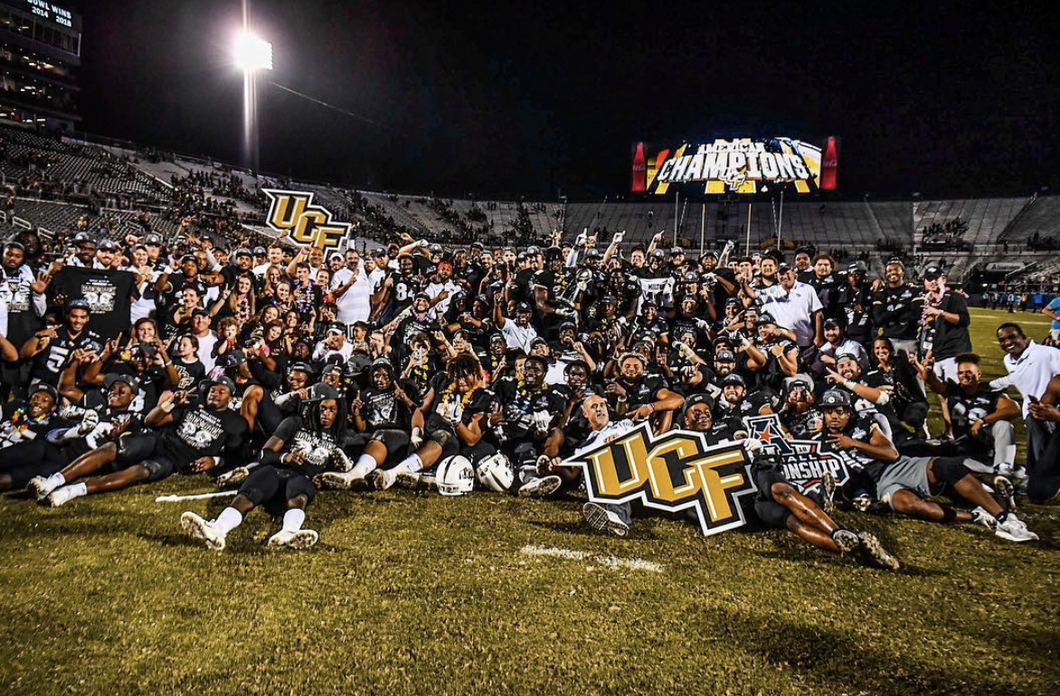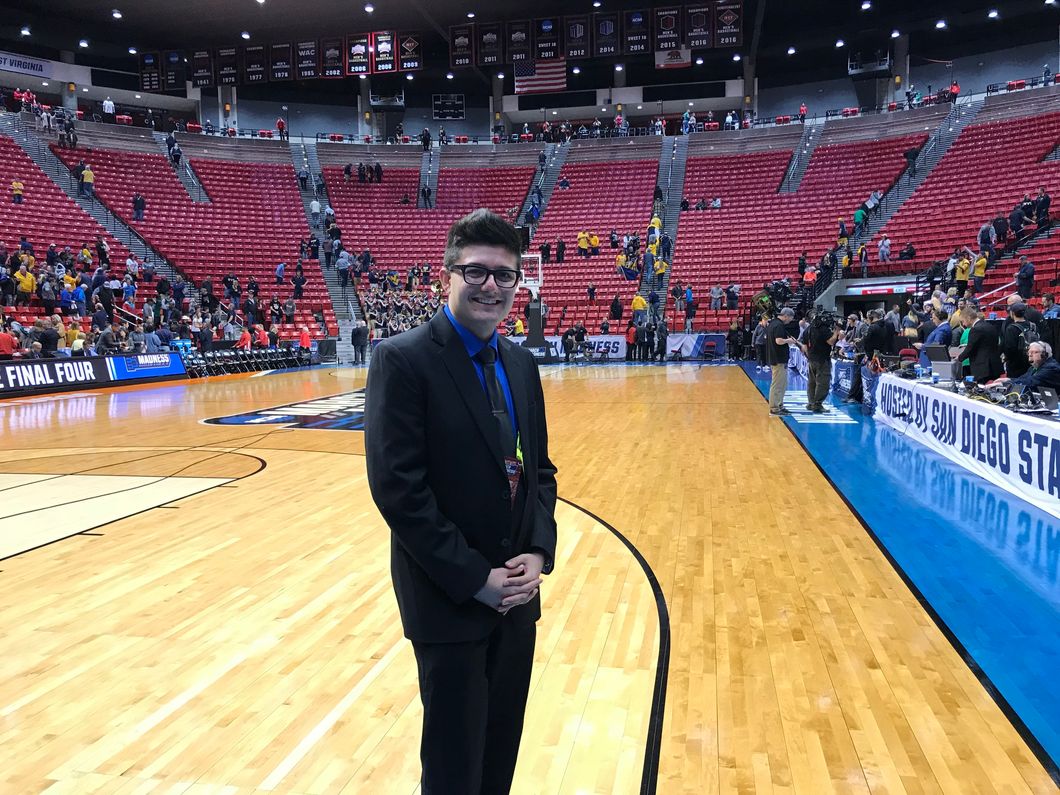Covering The UCF Game Versus Duke In Person Was The Hardest Moment Of My Journalistic Career
The ball spun around the rim for what seemed like an eternity.
A couple of weekends ago, I headed to Columbia, SC to cover the first and second rounds of the NCAA Tournament.
During the car ride there, my fellow journalism friends and I talked about the fact that if UCF won the first round, we would most likely be playing Duke, the number one overall seed, on Sunday.
We flirted with the idea that we could possibly upset Duke if every player came with his all — and we almost did.
Almost.
The game came down to the last seconds. I was sitting almost directly underneath UCF's basket in my photo square when it all went down. UCF needed one more basket to take Duke down for what would have been the biggest upset of the tournament. Junior guard Aubrey Dawkins almost did it. He attempted a tip-in in the last seconds of the game. The ball spun around the rim for what seemed like an eternity. I looked away.
A few seconds later, Dawkins fell to his knees right in front of me. I knew at that moment that it didn't go in. The team was that close — that close to advancing to the Sweet 16 and proving to the world that this basketball program is nothing to underestimate.
As a journalism student at UCF, I've covered a lot of sports. I've seen losses, but none of them felt like this. My first instinct was to make sure I got photo and video of every moment, so I pulled out my phone and started shooting the aftermath. I was still in shock, even throughout the press conference. I just kept doing what I know best: to just cover the game to the best of my ability. As players and fans cried around me, I didn't shed a tear.
However, when I got back to my hotel and started filing my story and going through my photos from the night, it hit me. I may be a journalist, but I am also a Knight. I bleed black and gold, and I always will. I finally let myself have a moment. It hurt in a way I have never experienced before. It was 100 percent my hardest moment as a student journalist.
But through all the madness and sadness, above all, I was proud. I was proud that I was able to cover the weekend the way I did, I was proud of all of the UCF fans that made the trip to support the team and I was proud of the way the boys went out and performed on the national stage.
We may not have come out on top that night, but we are still winners.
No matter how hard those moments Sunday night were, they are still my favorite moments I've spent covering UCF. That game is one I will never forget, in the best way. I'm so grateful that I had the opportunity to be on the court that night.
Go Knights, March On.


























There Needs To Be More Female World Cup Commentators, We Deserve Representation
It's 2018. This should not be the first time that women commentate a men's FIFA World Cup Match.
British journalist Vicki Sparks became the first woman to commentate a men's FIFA World Cup match for BBC.
She is not alone, former US Women's National Team midfielder Aly Wagner became the first female game analyst on American television when she commentated a World Cup Match for Fox Sports while German Claudia Neumann and Swede Hanna Marklund did the same in their respective countries.
However, all of these women were met with criticism from people who believe that women should not be commentating men's matches as well as patronization from men who believed they were clueless.
Former defender Jason Cundy was highly criticized by the media when he complained that women's voices as too "high-pitched" for soccer and that he "found it tough to listen." While former French national team player Patrice Evra was criticized for his misogyny and shock that Juventus forward Eniola Aluko understood basic concepts of soccer.
I believe that this blatant sexism is exactly the reasons that there need to be more women commentating men's soccer matches. Women are just as capable of understanding and analyzing soccer as men are, in fact, the commentary of Aly Wagner and her partner Derek Rae has been praised as "the tournament's best commentary."
As both a player and a fan, I have always felt like there is a connotation that men's soccer is, for some reason, better than women's soccer. Maybe it is that fact that nearly everywhere around the world, men's soccer receives more coverage and funding than women's. Maybe it is the fact that many women's soccer leagues are newer than the leagues of their male counterparts. Whatever the reason it needs to end. Especially in the United States, a nation that has seen its women's national team win three FIFA World Cups and four Olympics golds, while its men's team has failed to win one of either, yet fails to truly support women's soccer.
Aly Wagner was recently quoted as saying "I think it's really important to have men and young boys and teenagers…hear women's voices in the sports world on the level of analyst…as long as it's good analysis." I completely agree.
There need to more female commentators at all levels of soccer and other sports to show that, despite the vast gender inequality, women can work and succeed in the field of sports journalism. And the only way to get women accepted as sports commentators is to make it the new norm.